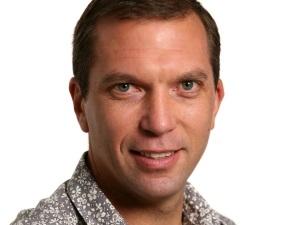Johannesburg, 25 Aug 2014

Why is AT&T (America's telecommunications corporation) buying Direct TV (America's second biggest satellite operator) for a reported 67.1 billion US dollars?
Why has BT (Britain's biggest telecommunications corporation) bought the English Premier League rights for £897 millon and rights for the European Champions League for £1 billion? And why is Netflix (a pure video on-demand over-the-top operator) producing House of Cards for an estimated $10 million per episode?
None of these companies are pure broadcasters, and these are just a few examples of the deals going on at the moment. The landscape is changing and content is entering a whole new game, says Pierre Cloete, Head of Practice, TV and Media, at Ericsson sub-Saharan Africa. One thing is clear, content is massively important. The explosion of connected mobile devices has opened a whole new world of possibilities when it comes to viewing TV and video content. In TV, they are talking about the "Golden Era of TV" as the quality and volume of TV shows have never been at such a height, and this mainly due to the demand for video content.
With the massive shift in content ownership and rights taking place, the mindset of telecommunications corporations (telcos) and mobile network providers (MNOs) are changing. Current business models for telcos and MNOs are skewed towards charging for connectivity, voice and data, whereas broadcasters rely on advertising and subscriptions as the backbone of their business. The broadcasters and content owners view content as an asset that is traded as a commodity. The objective is to "sell" the content directly to the end-user (in bulk or piece by piece) or have advertisers buy space in and around the content which funds the right to have viewers watch the content.
Telcos and MNOs have been viewing content as an expense to bring in more customers onto their service and charge for the data or connection. The usage of the bandwidth is being charged for at a mark-up, which is funding the content. Providers serving content on the telco and MNO platform have been introducing advertising and video on-demand models to fund the content costs (ie, YouTube and Netflix).
The new business models for delivering content will be hybrids, where the importance of monetising the TV and media content will take all potential revenue streams into consideration in the conception phase. This will ensure the full value of the content is unlocked. Here, telcos and MNOs have the advantage as they can own the complete value chain. The customer's primary relationship is with their main service provider. Telcos and MNOs already have extensive penetration regarding transactional relationships, they are a trusted provider and can use that to leverage additional services and products, of which TV and media is one of the most important.
Ericsson TV and Media is gearing up to assist its current and future clients to realise the potential revenue in content, offering TV and media solutions relevant for each market and each platform.
Pierre Cloete
Head of Practice, TV and Media, Ericsson sub-Saharan Africa
Pierre Cloete is the Head of Practice, TV and Media for Ericsson sub-Saharan Africa and is responsible for driving the engagement and sales of Ericsson's TV and Media business in the region. With a wealth of experience in product development, strategic planning and indeed the television and media industry, Cloete fully appreciates the evolving TV and media landscape and the pivotal role of technology in the advancement of the industry. He joined Ericsson in 2014.
Over the course of 15 years, prior to joining Ericsson, Cloete held several position in SuperSport and M-Net (Africa's leading pay TV broadcaster), rising to the role of Director of M-Net Movies. In this capacity, he led the launch of 16 dedicated movie channels (eight in southern Africa and eight in sub-Saharan Africa) as well as supervised the expansion and running of 28 M-Net branded channels. He is also credited with overseeing the creation and development of several TV hits.
Born and raised in Johannesburg, Cloete holds a bachelor's degree in commerce from the University of Johannesburg, South Africa. He is married and enjoys mountain bike riding.
Ericsson is Africa's leading provider of communications technology and services and employs over 3 000 professionals who support more than 100 customers in 43 countries across sub-Saharan Africa.
Share